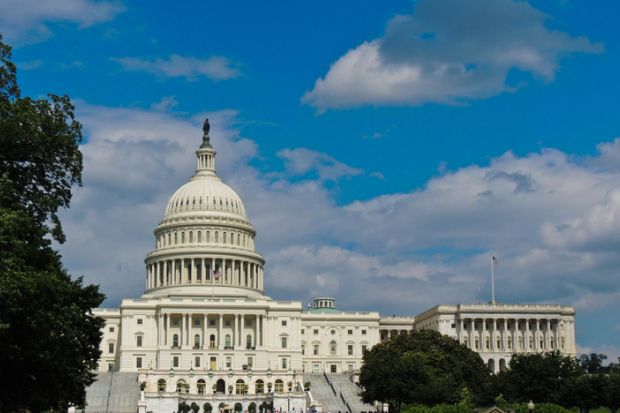Leading US colleges which have found themselves in the “cross hairs” of the incoming Trump administration are stepping up lobbying efforts to protect academic freedom and funding, according to experts.
The president-elect – who has vowed to fire “radical left accreditors” and whose running mate, J.D. Vance, has described universities as “the enemy” – will take office on 20 January with an anxious sector watching on.
Maurie McInnis, the recently appointed president of Yale University, has announced plans to ramp up the Ivy League school’s activities in Congress – including travelling to Washington often, and opening a new office in the capital.
And Harvard University president Alan Garber, another recent appointee, has met with about 40 members of Congress during six trips to Washington so far. According to reports, he views the election results as an “anti-elite repudiation by the American electorate” and plans to adopt a diplomatic approach towards lawmakers.
Patricia McGuire, president of Trinity Washington University, told Times Higher Education that lobbying was nothing new but that elite universities have “come under fire” from some on the right who threaten to diminish the autonomy of universities to govern themselves.
“What we’ve seen in Florida and Texas with governors and legislators aggressively curtailing academic freedom, abolishing DEI [diversity, equality and inclusion] and taking over boards could become a battle for elite private higher education as well, aided by some very prominent large donors,” she said.
Professor McGuire said leaders would look to find ways to cooperate with some “relatively benign agenda items” the new administration proposes, such as new guidelines for dealing with antisemitism.
“They want to protect academic freedom and institutional autonomy, of course, and they also want to protect the billions of federal dollars that fund everything from financial aid to research enterprises,” she said.
Despite Mr Trump’s seemingly steadfast opposition to elite colleges, Professor McGuire said it was not too late for top leaders to have an impact, and that the president-elect often failed to deliver on his “bluster”.
Carolyn Fast, director of higher education policy and senior fellow at the Century Foundation, agreed that the higher education policy landscape was continually evolving, and that college leaders may still be able to convince lawmakers to change course.
“Elite colleges, and institutions of higher education more broadly, are in the cross hairs of the Trump administration and Republican lawmakers,” she said.
“Unfortunately, the lawmakers attacking colleges are missing an opportunity to rein in the staggeringly high cost of higher education for families and to protect students from investing in low-quality programmes that provide little or no boost to earnings or job prospects.”
She also said that colleges will be hoping to prevent lawmakers from taking sweeping actions that could pose a substantial threat to institutional bottom lines, such as changing the law that protects most colleges’ endowments from taxation.
With the GOP Congress and president-elect both signalling major changes to the tax code, Chris Marsicano, assistant professor of educational studies at Davidson College, said colleges will "want a seat at the table when deciding how they will be taxed in the future".
"The goal for higher education lobbyists – especially those at wealthy private institutions – is to stop bad things from happening.
"It is going to be a long four years of colleges and universities trying to stop policy changes that could make it harder for them to achieve their missions."
While few have announced it publicly, Dr Marsicano said nearly every college president at a well-heeled institution will be trying to meet with members of congress right now.
Melissa Gilliam, president of Boston University, said that her colleagues would be reminding senators and congressmen of the benefits that universities bring – including to their own districts – as “tremendous sources of innovation”.
“I think this is a moment when higher education is not fully understood and has been in the spotlight, and a clear part of the strategy has to be clarifying and helping people understand the purpose of what we do,” she said.
Register to continue
Why register?
- Registration is free and only takes a moment
- Once registered, you can read 3 articles a month
- Sign up for our newsletter
Subscribe
Or subscribe for unlimited access to:
- Unlimited access to news, views, insights & reviews
- Digital editions
- Digital access to THE’s university and college rankings analysis
Already registered or a current subscriber?








